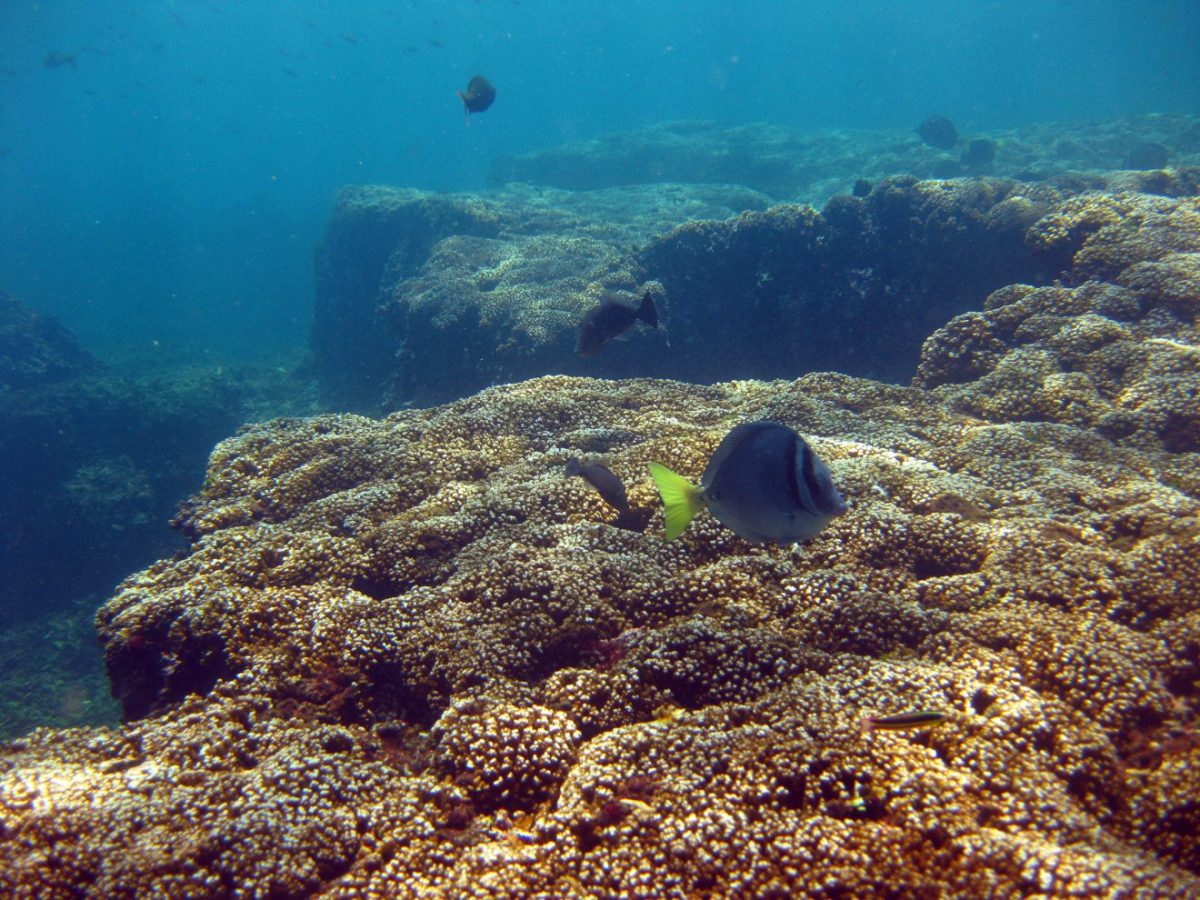Richard Aronson, Ph.D.
Department Head | Ocean Engineering and Marine Sciences
- Melbourne FL UNITED STATES
- Edwin A. Link Building 106
- Ocean Engineering and Marine Sciences
Dr. Aronson's research combines paleontology and ecology to reconstruct the response of marine communities to environmental changes.
Contact More Open optionsSpotlight

September 12, 2025
2 min

February 07, 2023
2 min
Areas of Expertise
About
Rich Aronson grew up in Queens, New York, and became interested in marine biology at an early age, collecting shells on Jones Beach, Long Island. He received his A.B. from Dartmouth College in 1979 and a Ph.D. from Harvard University in 1985.
Dr. Aronson's research program combines paleontology and ecology to reconstruct the response of marine communities to environmental changes in deep time. He brings this information to bear in predicting the impacts of climate change on modern biotas and the communities they comprise.
Dr. Aronson's primary focus is on coral reefs and subtidal communities in Antarctica. The plants and animals living at the latitudinal extremes of the tropics and the poles are quite different, of course, but they share a key characteristic: very narrow ranges of environmental tolerance. Because tropical and polar seas have very little in the way of seasonal temperature variation, most marine species in both zones are adapted to those narrow ranges, making them highly vulnerable to climatic warming. Indeed, the ecological impacts of climate change are being seen earliest and most clearly in the tropics and at the poles.
In addition to research and teaching, Dr. Aronson is active in outreach. He visits K-12 classes regularly and works with journalists on stories about our changing planet. Dr. Aronson's lab is active in producing short videos on climate change and other environmental issues created by undergraduate and graduate students at Florida Tech.
Media Assets
Media Appearances
Florida Tech study: King crabs threaten ecosystem due to warming ocean
Orlando Sentinel
2015-09-29
Warming temperatures in the Antarctic Peninsula could make it possible for king crabs to migrate from their current deep-sea home to the shallow continental shelf, said Richard Aronson lead author of the study and head of Florida Tech's Department of Biological Sciences. Their move would have a huge impact on the ecosystem of these shallower waters, possibly making the crustaceans high-level predators where they haven't been for millions of years, according to the study.
Oceanic warming threatens polar wildlife with extinction
CBC
2018-05-07
Richard Aronson, a co-author of the study and head of the department of ocean engineering and marine sciences at Florida Tech, said wildlife in the Arctic and Antarctic is particularly at risk.
Storm-Surfing Parasites Spread Widely
Scientific American
2020-11-01
“The kicker here for me is climate change,” says Richard Aronson, a marine biologist at the Florida Institute of Technology, who was not involved in the study. If hurricanes increase in intensity as predicted, Aronson says, the study suggests there may be more genetic homogenization among some marine animals that would otherwise remain in isolated populations. This would make peripheral populations less likely to cleave off and create new species, he adds.
Florida Tech Faculty Among Top 2 Percent of Scientists Worldwide
Florida Tech News
2021-01-11
Ten faculty members currently or previously associated with Florida Tech have been named to a new list from Stanford University that compiles the top 2 percent of scientists worldwide. Inclusion on the list is based on standardized academic citations, co-authorships and related composite metrics that gauge career-long impact.
No northern escape route for Florida's coral reefs
ScienceDaily
2021-06-22
Co-author Richard Aronson, a marine scientist at Florida Tech and Toth's doctoral advisor, said, "All of us on the Eastern Seaboard know the jet stream is wobbling more and dipping southward more frequently, bringing us bad winter storms and bitterly cold weather. The corals along Florida's east coast will be hammered from the north by freezes on the anvil of rising temperatures in the south. They won't be able to shift locations from the Florida Keys to the east coast."
Education
Harvard University
A.M.
1980Dartmouth College
A.B.
Biological Sciences
1979Harvard University
Ph.D.
Biology
1985Links
Social
Selected Articles
Antarctic ecosystem responses following ice-shelf collapse and iceberg calving: Science review and future research
Wiley Interdisciplinary Reviews: Climate Change2020
Ocean acidification alters properties of the exoskeleton in adult Tanner crabs, Chionoecetes bairdi
Journal of Experimental Biology2021
Climate and the latitudinal limits of subtropical reef development
Scientific Reports2021
Upwelling and the persistence of coral-reef frameworks in the eastern tropical Pacific
Ecological Monographs2021
Twenty years of change in benthic communities across the Belizean Barrier Reef
PloS one2022
Languages
- French





